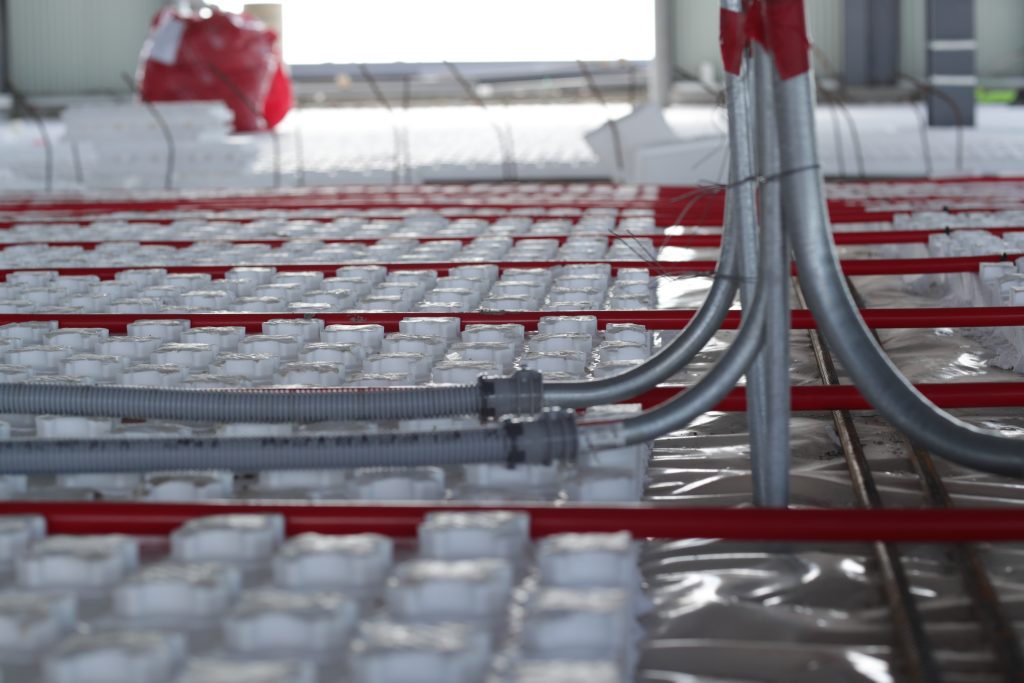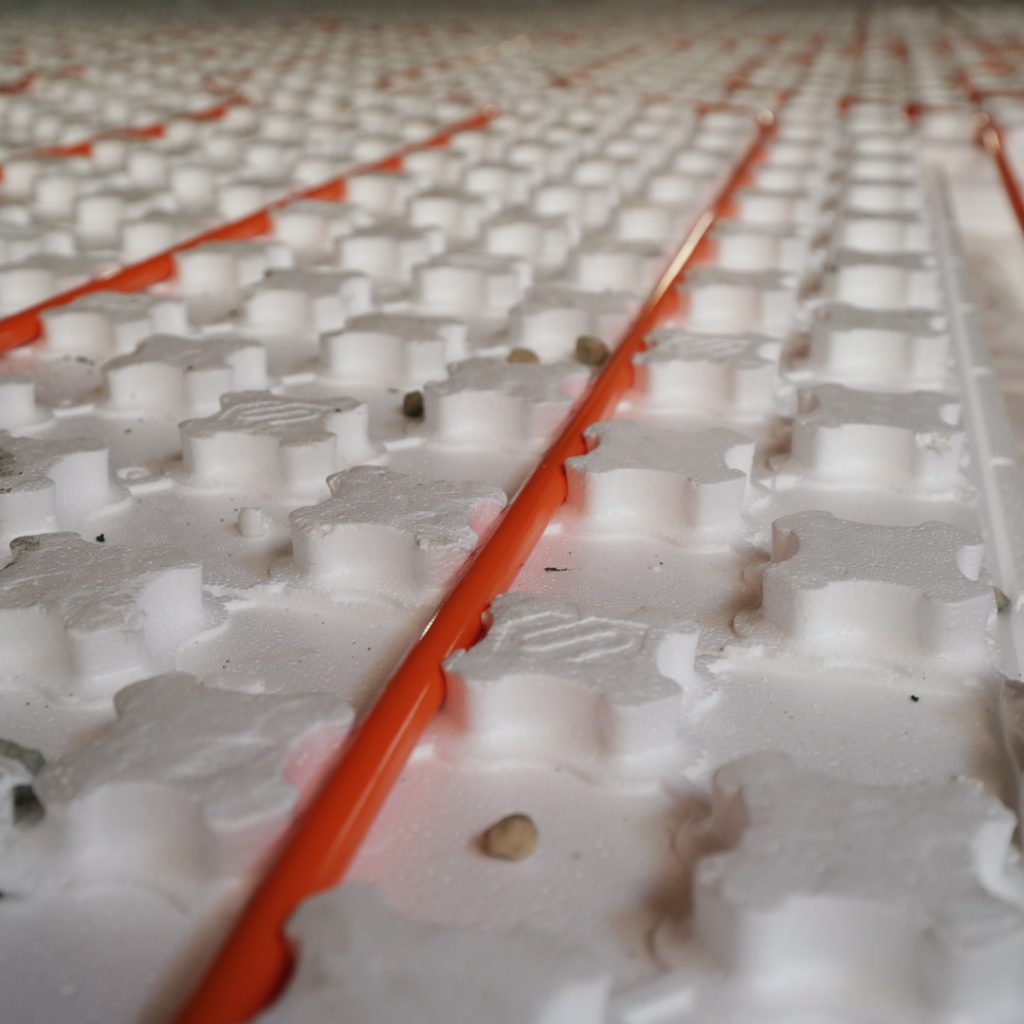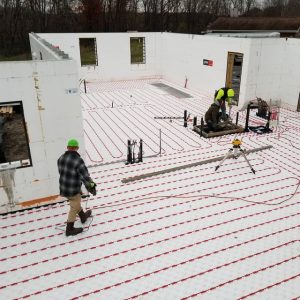Most North American homes are heated and cooled with forced-air furnace systems. But did you know that these heaters are a common cause of allergies and respiratory problems?
In this post, we will discuss the many drawbacks forced-air systems have on our wellbeing, and see why Radiant Floor Heating (RFH) is a healthier, comfier alternative.
Why Do Forced-Air Heaters Cause Health Problems?
Their name says it all: forced-air heating systems force outside air through a home’s ducts to its many heating zones.
Along with the hot or cold air, they’re meant to produce; these systems can also blow a slew of harmful particles. These include pollens, dust, and worse: ground-level ozone – aka smog. The former may irritate allergy sufferers, while the latter may lead to more severe health outcomes.
For those with asthma, chronic obstructive pulmonary disease (COPD), other respiratory ailments, or a weak immune system, these harmful pollutants pose a distinct health hazard. For healthy people, their effects may be less obvious but equally adverse.
Are Hydronic Systems Better for Health?
Unlike forced-air units, which use convection to move heat, RHF systems rely on radiation. They draw hot water from a boiler and pump it through a network of tubes inside the floor.
Because hydronic heaters don’t blow dirty outdoor air inside a home, their operations do not affect the indoor air quality. There’s no dust, no allergens, no noise – just warmth, rising slowly from the floor.

Are Hydronic Systems Better for Comfort?
Blowing air through a home’s ducts may cause not only allergies and health issues. This way of heating can also be a great source of discomfort.
Here’s a notable example: if a home’s thermostat is in the living room, how can it possibly reflect the temperature in the bedroom upstairs where warm air collects? Or the recreation room downstairs, where cool air pools? Due to their centralized heat source, forced-air systems cannot be controlled to heat or cool a particular zone in a home.
With RHF, however, homeowners have complete control over the heat setting in each room of the house. Not only is this a major comfort-booster but also an energy-saver – you use heat where and when you need it!
What’s more, RHF causes warmth to rise slowly from a floor, heating the lower, occupied portion of a room – where heat matters most. If power fails, the heated floors.
In contrast, hot air that’s blown in through a vent quickly rises and accumulates at the ceiling.

Don't miss a thing!
Subscribe for exclusive content, insider industry news and limited edition webcasts.
With RHF, There’s No Need for Humidifiers
Per the American Society of Heating, Refrigeration, and Air-Conditioning Engineers (ASHRAE), indoor relative humidity should be kept within the 30-60% range. Anything lower and our mucous membranes will dry out, leading to soreness in the throat, mouth, and nose. Those of us with forced-air heaters feel these symptoms for much of the heating season.
Apart from causing obvious discomfort, low humidity may also damage wood floors, furniture, and artwork in a home, and contribute to static electricity.
To counter the dryness, many people turn to humidifiers. These often give off too much vapor into the home environment, and wet is just as harmful as dry air: it aids bacteria growth and airborne infections. That’s not to mention the higher energy bills – it takes roughly 41,000 BTUs for a furnace’s humidifier to add 5 gallons of water to the indoor air daily.
With hydronic heat, there’s no furnace to dry out the air. A home’s humidity levels are preserved by simple daily tasks like cooking, showering, dishwashing, and laundry. There’s no need for humidifiers and no risk of infections being spread thanks to high moisture.
Wrapping It Up
Forced air may be the dominant heating method in North America, but it’s by far the least healthy or comfortable. Blown air causes allergy flare-ups, respiratory health issues, and dryness, and does not distribute heat efficiently. Hydronic RHF, on the other hand, is a healthy and comfortable way to stay warm.
Heat-Sheet’s EPS RFH panels are a top-tier, yet affordable product that facilitates installation, and comes in a variety of R-ratings and compressive strengths.








